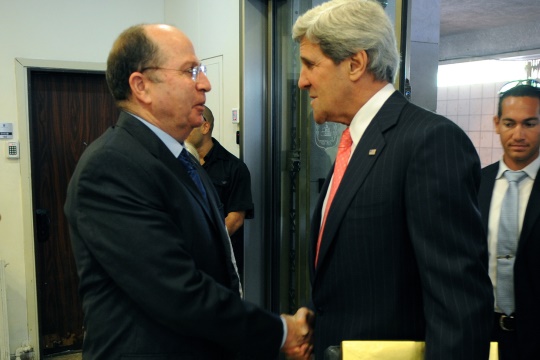No poll is perfect, but this one happens to be an accurate reflection of the Israeli government’s policies, much of its rhetoric, and the reality on the ground.
A large majority of Jewish Israeli citizens (74 percent) oppose the establishment of a Palestinian state along the pre-1967 borders, according to a new poll conducted by the Jerusalem Center for Public Affairs, a right-wing think tank. The organization also found that 76 percent oppose a Palestinian state if it means dividing Jerusalem.
The poll surveyed 505 Jewish Israelis, dividing them along their personal political orientation. Three hundred and four identified themselves as right wing, 125 as centrists and 68 as left wing. It is interesting to note that of those who consider themselves “centrists,” 63 percent oppose a Palestinian state along the pre-1967 border, compared with only 19 percent who identify as left.
When it comes to Jerusalem, a not surprising majority of both rightists and centrists oppose conceding East Jerusalem to a future Palestinian state. However, while 51.5 percent of leftists support it, nearly 40 percent of them oppose it. This means that even those who consider themselves left wing in Israel are on the fence about giving up East Jerusalem. From this we can conclude that most Jewish Israelis oppose a two-state solution, and even those on the left are not quite sure about it. It also illustrates that the notion of what is considered “left wing” in Israel has shifted to the right along with the rest of the public.

On the issue of the Jordan Valley, a large majority of Jewish Israelis, including those identified as left (42.6 percent), oppose withdrawal for the establishment of a Palestinian state.
The poll, published in Israel Hayom, is obviously meant to serve Netanyahu’s agenda. And while it is dangerous to rely on solely on a single poll to back up any claim, this specific poll – no matter how flawed or skewed – happens to be an accurate reflection of the Israeli government’s policies, much of its rhetoric, and the reality on the ground.
Prime Minister Netanyahu has said time and time again that Jerusalem is the eternal capital of Israel and will never be divided. Members of the Likud party have openly come out against the establishment of a Palestinian state and leaders of both Yisrael Beiteinu and the Jewish Home party could not be more explicit in how much they oppose the notion of a Palestinian state.
Just the other day, Defense Minister Ya’alon said plainly that he is “not looking for a solution, I am looking for a way to manage the conflict and maintain relations in a way that works for our interests. We need to free ourselves of the notion that everything boils down to only one option called a [Palestinian] state.”

So even though many polls over the years have shown and still show that a majority of Jewish Israelis support a two-state solution based more or less along the 1967 border with land swaps – such sentiment is reflected less and less in the way Israelis vote and talk. This new poll seems to provide a much more honest assessment of the reality on the ground and the reality in the halls of government.
If government policies, government rhetoric, the reality on the ground and polls like this one don’t convince the U.S. government and the rest of the world that Israelis have no interest in negotiating a peace deal that includes a viable Palestinian state, what will?
Related:
Polls: Two-state solution was a casualty, even before the war
After Kerry, only BDS may save the two-state solution
COMIC: Why even god can’t reach a two-state solution


